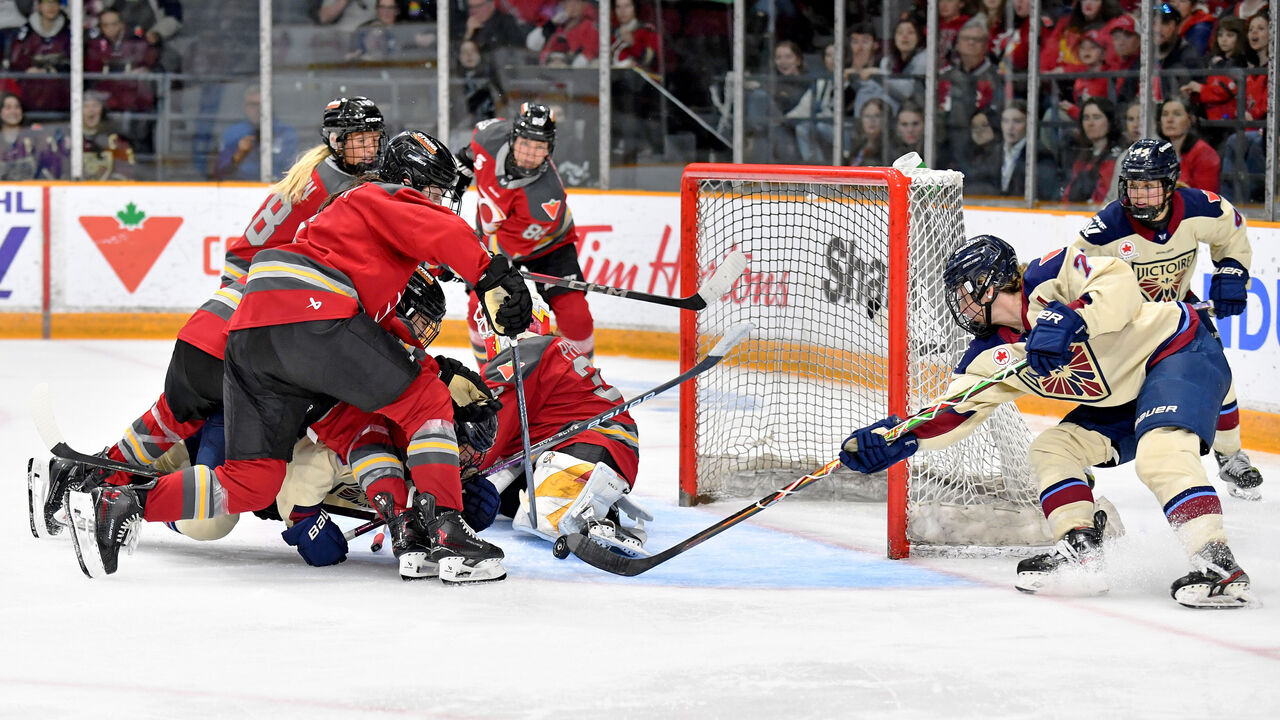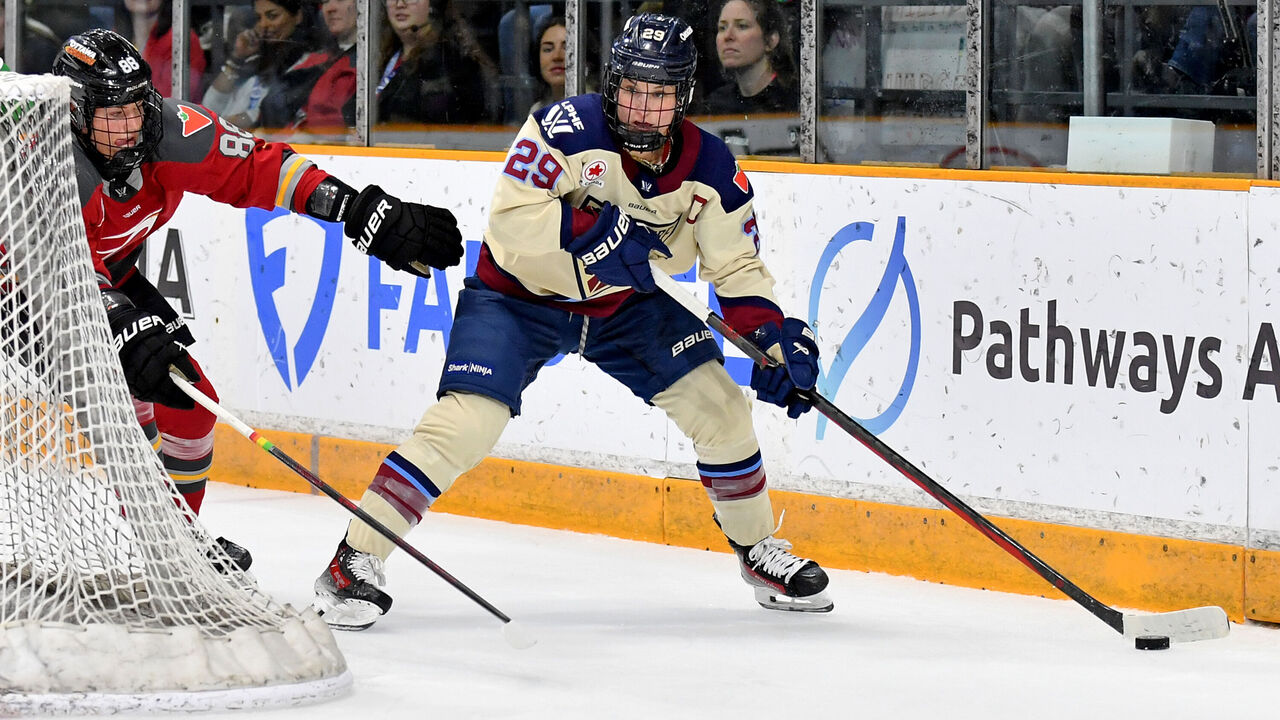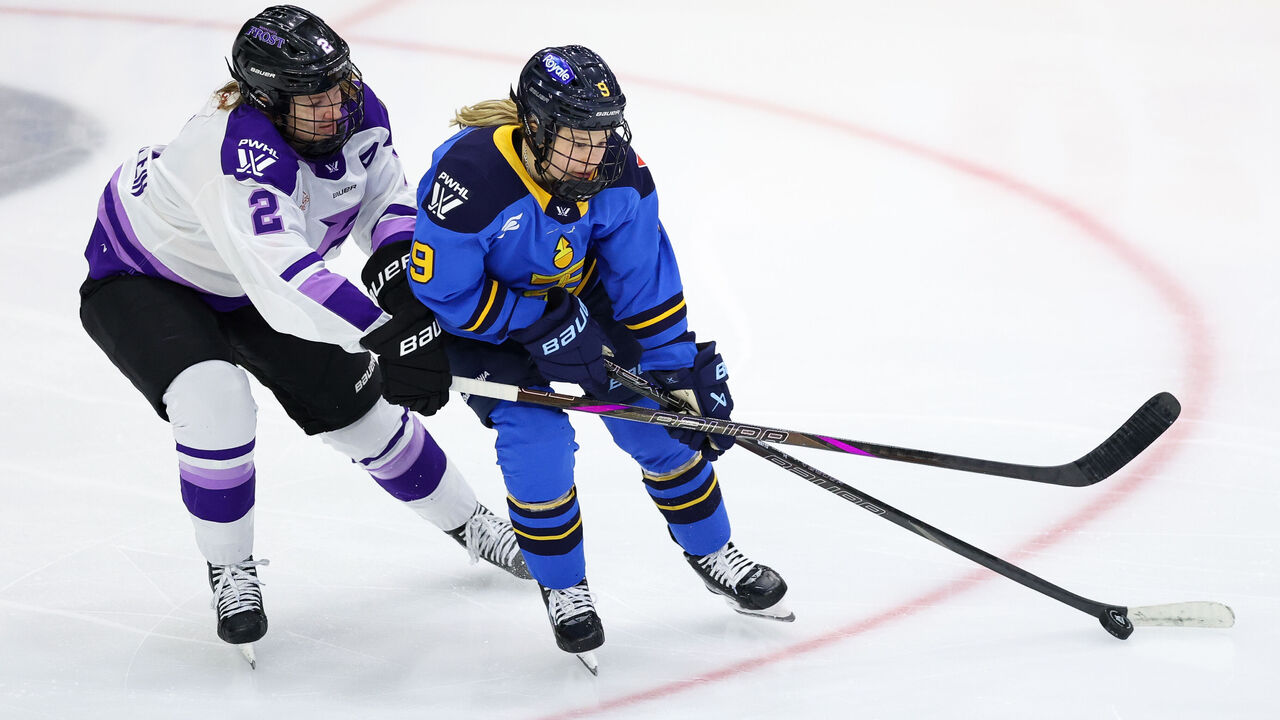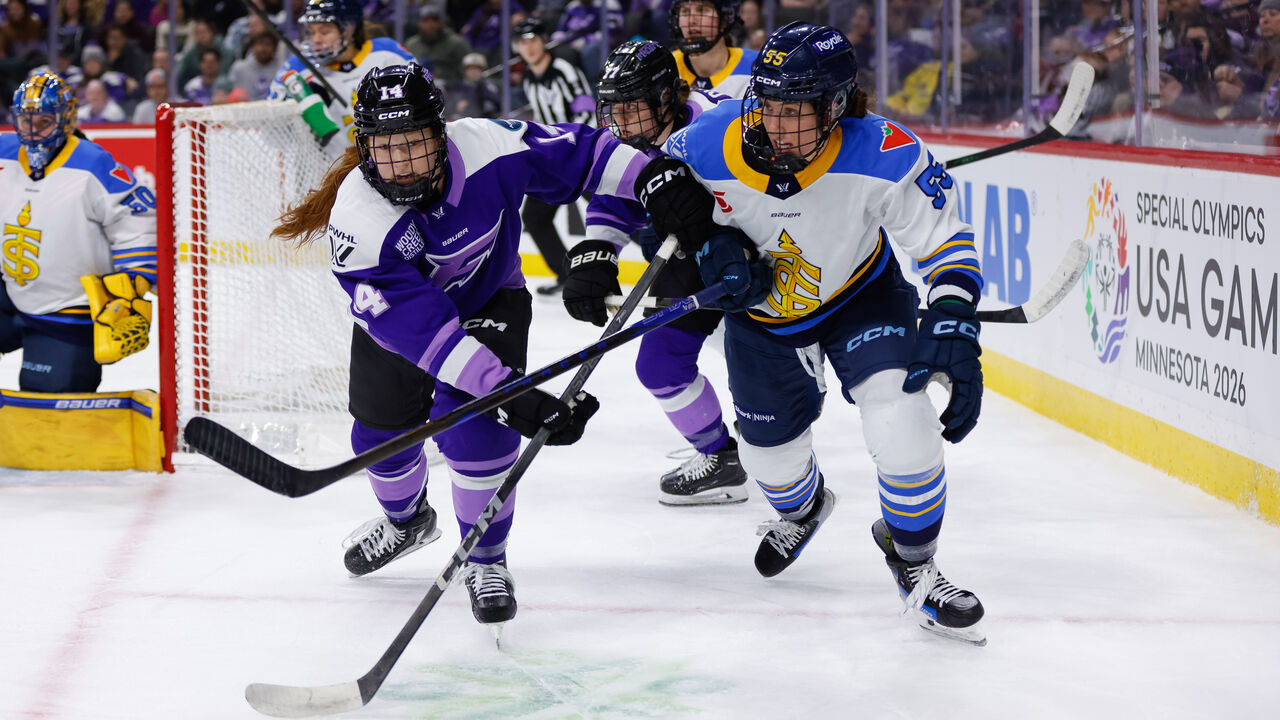Predictions for the PWHL semifinal matchups
The PWHL playoffs are here, and after a full regular season, there are no secrets. Every team's tendencies, vulnerabilities, and clutch performers are out in the open, and the first-round, best-of-five matchups are loaded with contrast.
Montreal topped the regular-season standings, powered by a relentless possession game and led by the sport's most iconic Canadian player, Marie-Philip Poulin. Toronto enters as the No. 2 seed, deeper and more balanced than they were a year ago and riding the momentum of a dominant second half in which they won 10 of 14 contests since the start of February (7-3-1-3).
Ottawa's a gritty, resilient group that's already taken down every other playoff team at least once. Then there's Minnesota, a team that surged late to claw its way into the playoffs on the last day with an 8-1 statement win over Boston - a reminder of how dangerous the defending champions' offense can be when the ice opens up.
Each team has a clear identity. Each matchup brings a clash of styles. In a best-of-five format, small tidal shifts - whether in goaltending, line matchups, or power plays - can swing everything.
Here are our predictions for the Walter Cup semifinal series.
Montreal vs. Ottawa

Montreal, as the top seed, used its ability to select its opponent by choosing No. 3 seed Ottawa for the semifinals. "Proximity came into play," Montreal coach Kori Cheverie said of the choice, admitting the league's parity made every opponent difficult.
This is a matchup between control and chaos, and that's part of what makes it so interesting. Montreal plays with structure. The Victoire want to own the puck, dictate the tempo, and trust their systems to create scoring chances. That style has worked against Ottawa, and Montreal has won four of their six matchups this season. The Victoire outshot the Charge in most of them and found consistent offense from Poulin, Jennifer Gardiner, and Erin Ambrose. In goal, Ann-Renee Desbiens led all qualified goalies in wins (15), goals-against average (1.86), and save percentage (.932).
Still, they're not expecting an easy shot to the Final. "It's going to be hard, it's going to be whoever is ready to go for 60 minutes - being that consistent team, that relentless, gritty team that's going to be there day in and day out," Poulin said.

Ottawa, on the other hand, is at its best when the game gets unpredictable. The Charge thrive on momentum swings and opportunistic goals from players like Tereza Vanisova, who tied for second in the league with 15 goals, Emily Clark, and Shiann Darkangelo. If rookie goaltender Gwyneth Philips can hold down the fort in place of injured Emerance Maschmeyer, and Ottawa can score first, it can be dangerous. But when the Charge are pinned in their own zone, they struggle to generate sustained pressure.
"There's a speed component, there's physicality, there's a puck movement piece that, when we know we're on, we can feel it," Ottawa coach Carla MacLeod said.
In a short series, control usually wins out. Unless Ottawa can tilt the ice early and disrupt Montreal's rhythm, the edge goes to the Victoire.
Prediction: Montreal in four
Toronto vs. Minnesota

This is a rematch from last season's semifinal when Minnesota fell behind 2-0 in the series but reeled off three straight wins to eliminate Toronto in five contests to claim the inaugural Walter Cup. A year later, both teams return more seasoned and with more distinctive identities. Toronto and Minnesota don't just play differently. They win differently, too.
Toronto also thrives on control. The Sceptres drive plays, accumulate high shot totals, and capitalize on their power play - which was the best in the league during the regular season at 25.8% efficiency despite being 0-for-19 over the final eight contests. (Minnesota owns the league's worst penalty kill, at 78.4%.) Now, finally healthy, the Sceptres spread their offense across multiple lines. They're stacked with goal scorers: Hannah Miller, Daryl Watts, and Jesse Compher all finished in the top 20 in league scoring. And, while goalie Kristen Campbell had a shaky start to the year, she found her form midseason and has been delivering strong late-game performances since.
Toronto hasn't forgotten its postseason defeat at the hands of the Frost last year. "There's definitely a sour taste in my mouth from last year, so (I) want to do better this year for sure," Sceptres defender Allie Munroe said.

Minnesota, by contrast, led the league with 85 goals and excels at even strength. The Frost had a league-leading 67 goals at even strength, proving they aren't dependent on the power play to win. Taylor Heise, Kendall Coyne Schofield, and Grace Zumwinkle lead Minnesota's arsenal, which pushes pace and punishes mistakes. The Frost are also confident they can tackle some of the deficiencies in their regular-season penalty kill.
"I think a big strength for us last year was our penalty kill really got dialed in come playoff time, and we had an unbelievable run," Coyne Schofield said. "We need to have that same mindset - when they get their opportunities, we need to do the best we can to shut them down, help our goalies, keep them to the outside, not giving them clean looks."
Prediction: Toronto in five
Jolene Latimer is a feature writer at theScore.